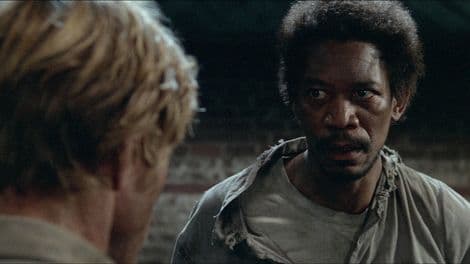Paris, Texas: A Philosophical Road Trip Through Loss, Love, and Loneliness
Wim Wenders' 1984 film "Paris, Texas" often resonates with viewers long after watching it. Its deliberate pacing and emotional silences invite deep reflection. Why does this movie garner high praise? Let’s explore its themes, characters, and questions surrounding family, identity, and the human condition.
Why the Acclaim? Unpacking the Goodness of "Paris, Texas"
“Paris, Texas” stands apart from Hollywood blockbusters. It favors introspection, character development, and emotional depth. Praise comes for its exploration of universal themes, stunning visuals, and compelling performances. It boldly explores human relationships and self-discovery.
The Heart of the Matter: Meaning and Interpretation
"Paris, Texas" is a road movie with an internal journey at its heart. Its protagonist, Travis Henderson, wanders the Texan desert without memory. He is lost to himself and revisits a fragmented past. The film dives into loss, love, and loneliness, as well as redemption, forgiveness, and searching for belonging.
Tears in the Texas Dust? The Emotional Impact
Prepare for emotional weight; "Paris, Texas" is not light-hearted. It may bring tears. The desolate beauty of Texas enhances its melancholy. The film evokes emotions without melodrama. Its impact lingers, leaving viewers with a sense of hollowness and understanding of vulnerability.
Plot Unveiled: A Journey of Rediscovery
The story begins with Travis emerging from the desert, lost and amnesiac. Portrayed by Harry Dean Stanton, his brother Walt arrives to help him reintegrate. This disrupts Walt's stable life with his wife and Hunter, Travis's son. As Travis reconnects with them, pieces of his painful past unfold.
Echoes of the Prodigal Son: Themes of Grace and Forgiveness
The film subtly mirrors the biblical story of the prodigal son. Here, Travis is a father who abandoned his family for an unclear path. "Paris, Texas" tells a tale of grace and forgiveness amidst complexities. It shows human limitations in extending forgiveness but suggests redemption is possible.
Loneliness in the Lone Star State?
Is "Paris, Texas" about loneliness? Yes. The film embodies the ache of isolation. Travis is adrift in Texas’s vastness and his own mind. One critic calls it defiantly individual. It portrays a man wrestling with consequences and solitude that can accompany profound connections.
A Heroic Exit? The Ambiguity of the Ending
Is the ending of "Paris, Texas" good? It is subjective. Travis orchestrates a reunion between Jane and Hunter but chooses to leave. Wim Wenders viewed this as a “heroic act.” He sees his departure as necessary for Jane and Hunter’s future. The ending resonates with love and sacrifice complexities.
Paris, Texas: More Than Just a Name
Why is "Paris, Texas" famous? The name intrigues. The town features a 65-foot Eiffel Tower donning a cowboy hat, blending Texan pride with French ideas. This captures the film's essence. The town symbolizes lost dreams and an idealized past that haunt Travis.
Accolades and Acknowledgment: Awards and Nominations
"Paris, Texas" may not have won Oscars, but its impact is clear. The film received significant awards recognition in its time. Though it didn’t receive Academy Award nominations, it is regarded as a critical favorite.
Oscar Snub? Academy Awards and "Paris, Texas"
Despite acclaim, "Paris, Texas" missed out on Oscars. It's noteworthy that such a masterpiece overlooked by the Academy. Nonetheless, this absence does not diminish its artistic merit or influence on filmmakers and cinephiles. Profound cinematic achievements exist beyond Hollywood’s biggest night.
Beyond the Oscars: A Global Stage of Recognition
While the Oscars were elusive, "Paris, Texas" gained recognition elsewhere. It was nominated for Best Foreign Film at the Golden Globes. The BAFTAs nominated it for Best Film, Best Original Screenplay, and Best Director for Wim Wenders. It also won the César Award for Best Foreign Film in France and Best Feature Film in Germany.
Decoding Travis: Character Analysis and Plot Drivers
Travis Henderson drives the narrative of "Paris, Texas." His mysterious actions and motivations shape the story's deeper meanings. His departure, relationship with Jane, and state of mind are significant elements in understanding the film.
Why the Farewell? Travis's Departure Explained
Travis's decision to leave Jane and Hunter is crucial. After reuniting them, he chooses to exclude himself. He believes he has facilitated their reconciliation. This departure is selfless, acknowledging his limitations and potential obstacles to their healthier future.
Jane's Journey: From Absence to Reunion
Jane's character is compelling yet enigmatic. She begins as a distant figure. Working in a peep show booth symbolizes her emotional distance. Travis seeks her out, driven by guilt and longing to reconnect.
Regret lingers, with a hint of love. Through the one-way mirror, Travis shares his past errors. He explains to Jane that Hunter waits for her at a local hotel, inviting them to reconnect. Jane’s choice to meet Hunter and their embrace in the hotel signifies a deep emotional release and a chance for her and her son to start anew.
Hunter: The Link to Past and Future
Hunter, the young son caught between his parents' turmoil, plays a vital role. Portrayed by Hunter Carson, his performance earned a Young Artist Award nomination. Hunter symbolizes innocence and the hope for healing. Raised by Walt and his wife, he fills the void from Travis's absence. Travis seeks to mend their bond. Hunter drives Travis to face his past and brings Jane back into their son's life.
The Age Gap: Wenders, Kinski, and Travis's History
The 34-year age difference between Wim Wenders and Nastassja Kinski intrigues critics. Some suggest it shapes Travis’s background of abuse. While the film does not explicitly state this, it adds complexity to Travis and Jane's dynamics. This age gap invites reflection on character and creator relationships.
Behind the Lens: Production and Arthouse Ideals
"Paris, Texas" transcends storytelling; it offers a crafted cinematic journey. The R rating, stunning Texan locations, and its arthouse identity enhance its distinctive impact.
Rated R: Exploring the Content
Why the R rating? Several reasons exist: sexual content, strong language, and themes of domestic abuse are present. While not explicit, these mature themes are portrayed realistically. Minimal nudity appears in background posters. Strong language is rare, and domestic violence is implied. These themes raise the film’s intensity.
Texas as a Character: Filming Locations
The Texan landscape transforms into a character within "Paris, Texas." Shot across West Texas, including Marathon and Fort Stockton, it captures vastness and desolation. The last scenes shift to Houston’s urban backdrop. Key spots like Marathon Motel & RV Park enrich the film’s authenticity. Big Bend National Park highlights the area’s grandeur.
Arthouse Authenticity: Beyond the Mainstream
Is "Paris, Texas" an arthouse film? Absolutely. It embodies art cinema, valuing expression over commercial appeal. It diverges from mainstream formulas, highlighting slow pacing, nuanced characters, and rich themes. As an arthouse classic, it prioritizes atmosphere, symbolism, and emotional depth, urging viewers to engage more deeply. It showcases independent filmmaking's power and the allure of unique cinema.
Decoding the Visual Language: Symbolism and Interpretation
“Paris, Texas” is drenched in symbolism, using visuals to express deeper meanings. Color and imagery convey layers of thought, particularly through the color red.
The Significance of Red: A Color Palette
Red frequently appears in "Paris, Texas," contrasted with other shades. It's reminiscent of the American flag, hinting at identity and ideals. Red symbolizes passion, danger, and innocence vs. maturity. In the film, it reflects freedom's tension with captivity and the harsh realities of the idealized American dream.
A Tapestry of Colors: Beyond Red
Beyond red, the film's color choices convey significance. The consistent use of red, white, and blue mirrors flag colors, representing national identity or fractured Americana. The desert landscape adds to this symbolism, with stark tones highlighting Travis's emotional isolation and inner barrenness.
Paris, Texas: A Metaphorical Landscape
The title "Paris, Texas" holds deep symbolism. The city exists only as a name and a photo in the film. It represents an idea, a dream. For Travis, it signifies lost ideals— a vision of home and family with Jane. It symbolizes unattainable happiness and the gap between dreams and reality, offering ironic commentary on belonging.
Paris, Texas: The Real Town vs. Fiction
The title connects to the real town of Paris, Texas, inviting curiosity about the bond between film and place. While not directly shown, the town's essence enhances understanding of the story.
Why "Paris, Texas"? Unveiling the Town's Origins
Paris, Texas, is named after Paris, France. Founded in 1845 by George W. Wright's employee, it reflects the trend of naming U.S. towns after European cities. Paris once thrived as a farming community, evolving into a railroad hub. This context isn't central to the film but adds depth to its Americana theme.
Paris, Texas: A Cultural Microcosm
What makes Paris special? It's a cultural center. The downtown square features local businesses reflecting its unique history. Once home to theaters and banks, it now hosts restaurants and boutiques that blend historical charm with modern life. The town captures a distinct Texan identity while embracing a minor cosmopolitan flair.
Texas-Sized Eiffel Tower: A Quirky Landmark
Paris, Texas boasts an Eiffel Tower replica topped with a red cowboy hat. This 65-foot structure represents the town’s character: Lone Star pride mixed with French creativity and Texan whimsy. Smaller than the original, this tower is iconic, showcasing the town's unique spirit.
Facts and Figures: Demographics and Tornado Alley
Exploring Paris's demographics enriches understanding of its indirect representation in the film.
Racial Tapestry: Demographics of Paris
Recent data shows Paris is predominantly White (66.02%). It's followed by Black or African American (22.53%), Two or more races (8.28%), and Asian (1.38%). This diversity adds depth to the town’s identity in the broader American context, though it is not directly referenced in the film.
Tornado Alley: Paris and Natural Disasters
Is Paris in Tornado Alley? Yes. Texas lies within this tornado-prone zone along with parts of Kansas and Oklahoma. Paris has faced its share of disasters, including a fire in 1916 that prompted city replanning and a tornado in 1982 that damaged more than 1,500 structures and homes.
Adversity resonates with themes of rebuilding in the film.
Local Luminaries: Famous Faces from Paris, Texas
Paris, Texas, has notable figures. John Morris is one. He voiced Andy Davis in "Toy Story." Born in Paris, Texas, he connects to popular culture. He highlights the town's role in the broader creative landscape.
Eiffel Tower Dimensions: Size Matters, Texas Style
The Eiffel Tower replica in Paris, Texas, is 65 feet tall. It was built in 1993. This landmark symbolizes the town's identity. It is much smaller than the one in France. The Texas version has its own charm, showcasing unique aspects of the town.
Tangent Topics: Exploring Related Themes
"Paris, Texas" can lead to other themes that deepen understanding of the film's context.
Age of Consent in Texas: Navigating Legal Boundaries
The film shows complex relationships and past traumas. It's relevant to note age and consent laws in Texas. There isn't one minimum age for all sexual activity. Laws define "child" specifically. They generally prohibit conduct with those under 17 or 18. This context touches on power dynamics and vulnerabilities in relationships, which the film explores.
The Name "Texas": Unveiling Linguistic Origins
Why is it called Texas? The name comes from the Caddo word "táy:shaʼ," meaning "friends." Spanish colonists adopted it as "Tejas" or "Texas." The history gives a deeper understanding of the name and its indigenous roots, linking to themes of identity and place in the film.
The Allure of Paris: Beyond Texas
What is the charm of Paris, France? It attracts visitors with landmarks like the Eiffel Tower and Versailles. Its romantic vibe and cultural heritage are unique. From Seine picnics to Christmas markets, Paris has diverse experiences. This fascination contrasts with "Paris, Texas," revealing the film's themes of idealized versus real experiences.













Responses (0 )